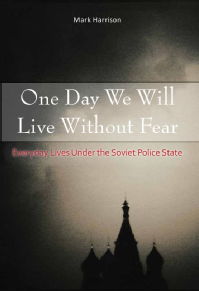Whatever is Abnormal is Suspicious
Writing about web page http://arstechnica.com/information-technology/2016/03/china-is-building-a-big-data-plaform-for-precrime/
China is investing heavily in its capacity to monitor and evaluate the attitudes and behaviour of the population. On 14 June 2014 the State Council issued a Notice concerning Issuance of the Planning Outline for the Construction of a Social Credit System. The plan envisages that by 2020 every adult Chinese citizen will have a social credit rating.
In a market economy, a person's credit is based on the record of what you earn, spend, borrow, and repay. You gain credit by demonstrating that you can handle money within the law and by honouring your debts. In China, "social credit" is partly financial, but it's also cultural and political. Social credit is gained, not just by handling money honestly and non-corruptly, but also, on a reasonable interpretation of the official language, by knowing the right people and showing the right attitudes in your social and political behaviour.
In other words, just as you can lose financial credit by breaking money rules, you will lose social credit by knowing the wrong people and saying the wrong things. And these things will interact, so that if you know the wrong people or say the wrong things you will put at risk your ability to borrow and to find responsible employment.
What's it all about? Based on its official motivation, the programme
uses encouragement to keep trust and constraints against breaking trust as incentive mechanisms, and its objective is raising the honest mentality and credit levels of the entire society.
Thus, it's explicit that social credit is an incentive mechanism aimed at behaviour change at the level of the population. Every single adult must must understand the norms that China's ruling communist party sets for personal behaviour in economic, cultural, and political life. Break those norms and you lose trust. Lose trust, and there wil be personal consequences. No one will be beyond the system.
Communist regimes have always aimed to classify their subjects for political reliability, but classification was usually crude and error-prone. Stalin's "usual suspects," (described in my new book One Day We Will Live Without Fear) were anyone who from a non-proletarian background, anyone educated under the old regime, anyone of foreign origin or experience of life abroad, anyone with religious beliefs, and so forth. In Mao's China people were classified into "red" and "black."
What the Chinese authorities have in mind today is a classification that is more sophisticated in every way: multi-dimensional, continuously calibrated, and above all comprehensive.
It's not hard to see the benefit for the party leadership. The party authorizes the norms that you should follow, but enforcing those norms throughout society is an unremitting slog. Through comprehensive "social credit" rating of the population, based on big data, the rulers gain a system that sets up clear incentives for every single citizen to conform in every aspect of their lives. If you have the wrong friends or you're indiscreet on social media, you lose the promotion or you are denied the loan you hoped for. So most people will be persuaded to conform.
Plus, the system will also identify the minority that isn't persuaded, and so resists the official incentives, and it marks them out as security risks.
Recently my attention was grabbed by the technology website Ars Technica discussing China's investments in big data collection such as CCTV:
The authorities are watching for deviations from the norm that might indicate someone is involved in suspicious activity (my emphasis).
I knew I had seen this somewhere before. So I looked for it, and here's what I found:
Our communists should be concerned every day to study and know more deeply processes that are essentially anomalous, that is, incorrect, deviating from the general rule of processes and phenomena, and in a timely way to obtain alerts leading to the exposure of persons intending to carry out hostile actions that can lead to serious consequences (my emphasis again).
This was nearly fifty years ago: on 24 April 1968, Lt. Col. Matulionis, an officer of the Soviet Lithuania KGB, was speaking to a meeting on counter-intelligence priorities of the day. (The documentary record is held on microfilm by the Hoover Institution Library & Archives, where I consulted it.)
Communism in Europe and China had common roots. After that, they went different ways. China today looks very different from the Soviet Union. But in respect of what makes a security risk, China's secret policemen have retained exactly the same idea as the Soviet KGB. An ordered society has normal processes. Good citizens follow those norms. When social norms are disrupted, the result is "anomalous, that is, incorrect."
That's where the secret policeman steps in. What is anomalous is incorrect. It arouses suspicion of a crime, and what is suspicious must be investigated for evidence. Who is behind this, and is the hand of the enemy at work?
 Mark Harrison
Mark Harrison

 Please wait - comments are loading
Please wait - comments are loading



 Loading…
Loading…

